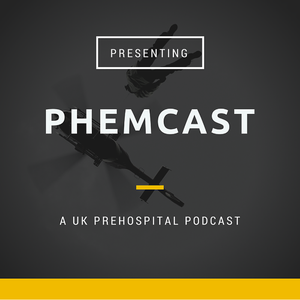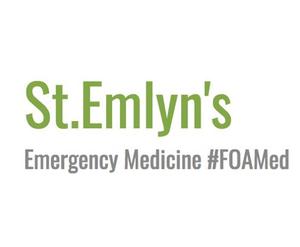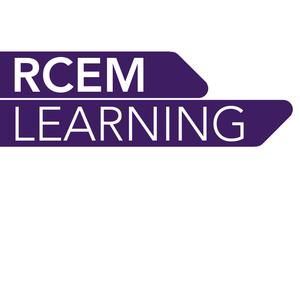
EMJ podcast
BMJ Group
Podcasts from the Emergency Medicine Journal featuring interviews and debates
- 29 minutes 51 secondsMissing elbow fractures, and consulting the elders: November 2024 Primary Survey
Upper limb injuries make up about three-quarters of the limb injuries to children seen in the emergency department. But when it comes to the elbow, just how good are clinicians at diagnosing based on radiography? The first paper this month is a study putting over 300 global participants to the test. There's also a practice review highlighting the concept of shared decision making with frail elderly patients, a discussion of biomarkers for aortic dissection detection, more on telephone triage, and an interesting questionnaire on patient experience.
Read the issue highlights: November 2024 Primary Survey
Articles discussed in this episode:
- Black and white: how good are clinicians at diagnosing elbow injuries from paediatric elbow radiographs alone?
- Person-centred decisions in emergency care for older people living with frailty: principles and practice
- Use of emergency departments by children and young people following telephone triage: a large database study
- The wisdom of elders: a new patient experience survey for older patients could tell us how to fix our emergency departments for everyone
- Psychometric validation of a patient-reported experience measure for older adults attending the emergency department: the PREM-ED 65 study
- Diagnostic accuracy of alternative biomarkers for acute aortic syndrome: a systematic review
Links:
The EMJ podcast is hosted by:
Dr. Richard Body, EMJ Deputy Editor, University of Manchester, UK (@richardbody)
Dr. Sarah Edwards, EMJ Social Media Editor, Leicester Royal Infirmary, UK (@drsarahedwards)
You can subscribe to the EMJ podcast on all podcast platforms to get the latest podcast every month. If you enjoy our podcast, please consider leaving us a review or a comment on the EMJ Podcast iTunes (https://apple.co/4bfcMU0) or Spotify (https://spoti.fi/3ufutSL) page.
1 November 2024, 5:00 am - 33 minutes 17 secondsRanking anaesthesias for wrist fracture, and finding pneumothoraces with AI: October 2024 Primary Survey
There's a whole pile of blocks in this month's papers, with the first being a trial of Erector-Spinae Plane (ESP) blocks, not for rib fractures as you might expect but Hepato-Pancreato-Biliary (HPB) pain instead. Following on from that is a retrospective study comparing the resource utilisation of haematoma blocks, Bier’s blocks and procedural sedation for patients with forearm fractures. The next paper sets the performance of unassisted radiographers against those armed with artificial intelligence algorithms when diagnosing pneumothorax, and the results show an interesting demographic trend. Concluding the discussion topics this month is a letter regarding "on-scene time" for ambulances when assessing patients for suspected stroke - a situation where every minute counts.
Read the issue highlights: October 2024 Primary Survey
Articles discussed in this episode:EASIER trial (Erector-spinAe analgeSia for hepatopancreaticobiliary pain In the Emergency Room)
The EMJ podcast is hosted by:
Dr. Richard Body, EMJ Deputy Editor, University of Manchester, UK (@richardbody)
Dr. Sarah Edwards, EMJ Social Media Editor, Leicester Royal Infirmary, UK (@drsarahedwards)
You can subscribe to the EMJ podcast on all podcast platforms to get the latest podcast every month. If you enjoy our podcast, please consider leaving us a review or a comment on the EMJ Podcast iTunes (https://apple.co/4bfcMU0) or Spotify (https://spoti.fi/3ufutSL) page.
1 October 2024, 4:00 am - 33 minutes 47 secondsInducting new doctors, and managing rib fractures: September 2024 Primary Survey
Being fallible was one of the most valued characteristics in a consultant, according to new doctors going through their induction - that's the subject of the first paper this month. Next up is a study on the impact of noise on hospital staff, which includes some simple interventions with measurable impact. There's also a discussion on pain relief for rib fractures, and how frailty scores are linked to 30-day mortality in patients.
Read the issue highlights: September 2024 Primary Survey
Articles discussed in this episode:Qualitative study of new doctor induction and socialisation
Reduced noise in the emergency department: the impact on staff well-being and room acoustics
The RELIEF feasibility trial: topical lidocaine patches in older adults with rib fractures
Frailty is associated with 30-day mortality: a multicentre study of Swedish emergency departments
The EMJ podcast is hosted by:Dr. Richard Body, EMJ Deputy Editor, University of Manchester, UK (@richardbody)
Dr. Sarah Edwards, EMJ Social Media Editor, Leicester Royal Infirmary, UK (@drsarahedwards)
You can subscribe to the EMJ podcast on all podcast platforms to get the latest podcast every month. If you enjoy our podcast, please consider leaving us a review or a comment on the EMJ Podcast iTunes (https://apple.co/4bfcMU0) or Spotify (https://spoti.fi/3ufutSL) page.
4 September 2024, 10:40 am - 32 minutes 46 secondsWhen to CT scan after a seizure, and indirect signs of appendicitis: August 2024 Primary Survey
The recovery of laceration repair patients is the topic of this month's first paper, looking at behavioural disturbances in children following these difficult medical procedures. The second paper deals with pre-hospital use of tranexamic acid for trauma, and surfaces some demographic discrimination in its rates of application. Next there is an observational study which has developed a score for indirect signs of appendicitis on ultrasounds where the appendix is not visualised. Finishing off the episode is a "Best Evidence" report, dealing with the appropriate usage of CT scans on patients first presenting with a seizure.
Read the issue highlights: August 2024 Primary Survey
Articles discussed in this episode:
The EMJ podcast is hosted by:
Dr. Richard Body, EMJ Deputy Editor, University of Manchester, UK (@richardbody)
Dr. Sarah Edwards, EMJ Social Media Editor, Leicester Royal Infirmary, UK (@drsarahedwards)
You can subscribe to the EMJ podcast on all podcast platforms to get the latest podcast every month. If you enjoy our podcast, please consider leaving us a review or a comment on the EMJ Podcast iTunes (https://apple.co/4bfcMU0) or Spotify (https://spoti.fi/3ufutSL) page.
2 August 2024, 12:27 pm - 26 minutes 27 secondsOpioid toxicity, thrombectomy transfers, and austerity's impact: July 2024 Primary Survey
What might yawning and sneezing be signs of in a patient? This month's podcast features new RCEM and NPIS guidance on acute opioid toxicity, outlining a number of symptoms to stay alert to. Before getting to that there's a paper on bypassing hospitals for patients needing mechanical thrombectomy, a study on how austerity affected emergency admissions across a range of UK local authorities, and some research on the immune-related adverse affects that can arise in the ED amongst oncological patients.
Read the issue highlights: July 2024 Primary Survey
Articles discussed in this episode:
Healthcare professional views about a prehospital redirection pathway for stroke thrombectomy: a multiphase deductive qualitative study. Day J, Simmonds RL, Shaw L, et al
Are local public expenditure reductions associated with increases in inequality in emergency hospitalisation? Time-series analysis of English local authorities from 2010 to 2017. Castro-Ávila AC, Cookson R, Doran T, et al
Management and outcome of oncological patients under immune checkpoint inhibitors presenting at the emergency department. Pini F, Grigoriu B, Lieveke A, et al
Joint RCEM and NPIS best practice guideline: assessment and management of acute opioid toxicity in adults in the emergency department. Blundell M, Gill R, Thanacoody R, et al
The EMJ podcast is hosted by:
Dr. Richard Body, EMJ Deputy Editor, University of Manchester, UK (@richardbody)
Dr. Sarah Edwards, EMJ Social Media Editor, Leicester Royal Infirmary, UK (@drsarahedwards)
You can subscribe to the EMJ podcast on all podcast platforms to get the latest podcast every month. If you enjoy our podcast, please consider leaving us a review or a comment on the EMJ Podcast iTunes (https://apple.co/4bfcMU0) or Spotify (https://spoti.fi/3ufutSL) page.
4 July 2024, 3:39 pm - 32 minutes 9 secondsPatient self-perception, and presentations of headache: June 2024 Primary Survey
How well do patients in the emergency department judge the severity of their situation? Some may fear the worst for any hospital visit, and others not realise that their lives are in danger. This month's first paper is a review of the accuracy of self-prognostication and its relation to admission, severity, and length of stay. Then there's a trio of publications on the challenges of pain in various forms. Starting with a study on the links between red flags in headache assessment, and serious secondary headaches. Next there is a letter, questioning how well pain management is done in the ED. To finish, a new scale has been developed to assess ultrasound-guided fascia iliaca block.
Read the issue highlights: June 2024 Primary Survey
Articles discussed in this episode:
Can acutely ill patients predict their outcomes? A scoping review. Mols EM, Haak H, Holland M Safer@Home Research Consortium, et alPredictive performance of the common red flags in emergency department headache patients: a HEAD and HEAD-Colombia study. Chu K, Kelly A, Kuan WS HEAD and HEAD-Colombia study groups, et al
Pain in the ED: does anyone manage it well? Wilson S, Dainty J, Quinlan J, et al
Development and validation of an assessment tool for adult simulated ultrasound-guided fascia iliaca block: a prospective monocentric study. Guyader F, Violeau M, Guenezan J, et al
The EMJ podcast is hosted by:
Dr. Richard Body, EMJ Deputy Editor, University of Manchester, UK (@richardbody)
Dr. Sarah Edwards, EMJ Social Media Editor, Leicester Royal Infirmary, UK (@drsarahedwards)
You can subscribe to the EMJ podcast on all podcast platforms to get the latest podcast every month. If you enjoy our podcast, please consider leaving us a review or a comment on the EMJ Podcast iTunes (https://apple.co/4bfcMU0) or Spotify (https://spoti.fi/3ufutSL) page.
6 June 2024, 9:16 am - 29 minutes 55 secondsInterventions for smoking cessation, AI CT scan triaging, and cyclic vomiting: May 2024 Primary Survey
Should we be bringing preventative medicine into the emergency department, or is it just using up valuable time? Our first paper this month looks at the "Cessation of Smoking Trial in the Emergency Department (COSTED)" trial, which presents the case for opportunistic smoking cessation intervention. Next up is a topical research paper on interpreting CT scans with artificial intelligence, and how machine assessment measures up against experienced physicians. Then there's a trio of troponin papers, discussing high-sensitivity testing. The final paper this time is not a paper but a guideline from the Royal College of Emergency Medicine, setting out best practices for dealing with suspected cannabinoid hyperemesis syndrome.
Articles discussed in this episode:
Cessation of Smoking Trial in the Emergency Department (COSTED): a multicentre randomised controlled trial. Pope I, Clark LV, Clark A, et alUsing an artificial intelligence software improves emergency medicine physician intracranial haemorrhage detection to radiologist levels. Warman P, Warman A, Warman R, et al
External validation of a rapid algorithm using high-sensitivity troponin assay results for evaluating patients with suspected acute myocardial infarction. Cullen L, Greenslade JH, Stephensen L 2022 SAMIE study group, et al
High-sensitivity troponin testing at the point of care for the diagnosis of myocardial infarction: a prospective emergency department clinical evaluation. Curran JM, Mergo A, White S, et al
Determination of a whole-blood single-test low-risk threshold for a point-of-care high-sensitivity troponin assay. Pickering JW, Hamill L, Aldous S, et al
RCEM best practice guideline: suspected cannabinoid hyperemesis syndrome in emergency departments. Humphries C, Gillings M
The EMJ podcast is hosted by:
Dr. Richard Body, EMJ Deputy Editor, University of Manchester, UK (@richardbody)
Dr. Sarah Edwards, EMJ Social Media Editor, Leicester Royal Infirmary, UK (@drsarahedwards)
You can subscribe to the EMJ podcast on all podcast platforms to get the latest podcast every month. If you enjoy our podcast, please consider leaving us a review or a comment on the EMJ Podcast iTunes (https://apple.co/4bfcMU0) or Spotify (https://spoti.fi/3ufutSL) page.
9 May 2024, 11:42 am - 30 minutes 39 secondsSuspicious chest pain, inequality in COVID outcomes, and staff retention problems: April 2024 Primary Survey
“Social distancing is a privilege,” is the core message underlying the first paper brought by Sarah to this month’s roundup, as it unpacks the stark differences in COVID-19 outcomes across the spectrum of racial and ethnic groups in the United States. A second paper examines the returning rates of COVID patients across a large group of emergency departments in Canada, and the factors at play there. The final topic is one of Rick’s favourites, focusing on troponin testing in ambulances.
Articles discussed in this episode:
Pandemic phase-related racial and ethnic disparities in COVID-19 positivity and outcomes among patients presenting to emergency departments during the first two pandemic waves in the USA. Khosla S, Del Rios M, Chisolm-Straker M, et al.
Characteristics and outcomes of patients with COVID-19 who return to the emergency department: a multicentre observational study by the Canadian COVID-19 Emergency Department Rapid Response Network (CCEDRRN). Rosychuk RJ, Khangura JK, Ortiz SS, et al.
Perceived barriers and opportunities to improve working conditions and staff retention in emergency departments: a qualitative study. Daniels J, Robinson E, Jenkinson E, et al.
Prehospital T-MACS and HEART scores in the prediction of myocardial infarction: a prospective evaluation. Cooper JG, Donaldson LA, Coutts AJ, et al.The EMJ podcast is hosted by:
Dr. Richard Body, EMJ Deputy Editor, University of Manchester, UK (@richardbody)
Dr. Sarah Edwards, EMJ Social Media Editor, Leicester Royal Infirmary, UK (@drsarahedwards)
You can subscribe to the EMJ podcast on all podcast platforms to get the latest podcast every month. If you enjoy our podcast, please consider leaving us a review or a comment on the EMJ Podcast iTunes (https://apple.co/4bfcMU0) or Spotify (https://spoti.fi/3ufutSL) page.
5 April 2024, 2:32 pm - 28 minutes 44 secondsAortic dissection, coroners' court, and age-related outcomes: March 2024 Primary Survey
A feast of aortic papers this month, including a study on missed aortic dissection diagnoses and an analysis of coroners' reports. Rick runs through the findings of an interesting study from the Trainee Emergency Research Network (TERN), and Sarah finishes off with a paper on predicting adverse outcomes in elderly patients with orthopaedic trauma.
Articles discussed in this episode:
Ohle R, Savage DW, Caswell J, et al. Mortality and risk factors associated with misdiagnosis of acute aortic syndrome in Ontario, Canada: a population-based study.
Hodgson S, O'Mahony K, Nicholson J, et al. Thematic analysis of ‘Prevention of Future Deaths’ reports related to emergency departments in England and Wales 2013–2022.
McLatchie R, Reed MJ, Freeman N on behalf of the DAShED investigators, et al. Diagnosis of Acute Aortic Syndrome in the Emergency Department (DAShED) study: an observational cohort study of people attending the emergency department with symptoms consistent with acute aortic syndrome.
Isaac CJ, Moore L, Bérubé M, et al. Predictors of adverse outcomes in elders hospitalised for isolated orthopaedic trauma: a multicentre cohort study.
Related links:
RCEM Learning: Aortic Dissection podcast.
Trainee Emergency Research Network.
The EMJ podcast is hosted by:
Dr. Richard Body, EMJ Deputy Editor, University of Manchester, UK (@richardbody)
Dr. Sarah Edwards, EMJ Social Media Editor, Leicester Royal Infirmary, UK (@drsarahedwards)
You can subscribe to the EMJ podcast on all podcast platforms to get the latest podcast every month. If you enjoy our podcast, please consider leaving us a review or a comment on the EMJ Podcast iTunes (https://apple.co/4bfcMU0) or Spotify (https://spoti.fi/3ufutSL) page.
4 March 2024, 5:00 am - 28 minutes 43 secondsTrip killers, sympathetic crashing, and all sorts of sedatives: February 2024 Primary Survey
There's a lot of drugs to be talked about this month, and a heap of randomised control trials to be covered too. Rick and Sarah talk though the combining of nitrous oxide and fentanyl for sedation, the environmental impact of analgesics, the efficacy of acute heart failure treatment with high-dose and low-dose nitrates, and more newly published work from the latest issue of the journal.
Articles discussed in this episode:
Safety and efficacy of a nitrous oxide procedural sedation programme in a paediatric emergency department: a decade of outcomes
https://emj.bmj.com/content/41/2/76Environmental impact of low-dose methoxyflurane versus nitrous oxide for analgesia: how green is the ‘green whistle’?
https://emj.bmj.com/content/41/2/69
High-dose versus low-dose intravenous nitroglycerine for sympathetic crashing acute pulmonary edema: a randomised controlled trial
https://emj.bmj.com/content/41/2/96
Trip-killers: a concerning practice associated with psychedelic drug use
https://emj.bmj.com/content/41/2/112
Effect of intranasal sufentanil on acute post-traumatic pain in the emergency department: a randomised controlled trial
https://emj.bmj.com/content/41/2/83The EMJ podcast is hosted by:
Dr. Richard Body, EMJ Deputy Editor, University of Manchester, UK (@richardbody)
Dr. Sarah Edwards, EMJ Social Media Editor, Leicester Royal Infirmary, UK (@drsarahedwards)
You can subscribe to the EMJ podcast on all podcast platforms to get the latest podcast every month. If you enjoy our podcast, please consider leaving us a review or a comment on the EMJ Podcast iTunes (https://apple.co/4bfcMU0) or Spotify (https://spoti.fi/3ufutSL) page.
1 February 2024, 5:00 am - 31 minutes 3 secondsManaging acute behavioural disturbance, and some innovations in emergency care: January 2024 Primary Survey
What are the questions to ask when dealing with acute behavioural disturbance? Join Sarah and Rick this month for a discussion of this difficult presentation. They also explore the topics of reducing low-acuity attendance, taking NHS 111 online, and the impact of a health coaching intervention for potentially recurrent attendees.
Articles discussed in this episode:Highlights of the January 2024 issue
https://emj.bmj.com/content/41/1/1Consensus on acute behavioural disturbance in the UK: a multidisciplinary modified Delphi study to determine what it is and how it should be managed
https://emj.bmj.com/content/41/1/4What impact would reducing low-acuity attendance have on emergency department length of stay? A discrete event simulation modelling study
https://emj.bmj.com/content/41/1/27How could online NHS 111 reduce demand for the telephone NHS 111 service? Qualitative study of user and staff views
Impact on all-cause mortality of a case prediction and prevention intervention designed to reduce secondary care utilisation: findings from a randomised controlled trial
https://emj.bmj.com/content/41/1/34https://emj.bmj.com/content/41/1/51
The EMJ podcast is hosted by:
Dr. Richard Body, EMJ Deputy Editor, University of Manchester, UK (@richardbody)
Dr. Sarah Edwards, EMJ Social Media Editor, Leicester Royal Infirmary, UK (@drsarahedwards)
You can subscribe to the EMJ podcast via all podcast platforms, including Apple Podcasts, Google Podcasts, Stitcher and Spotify, to get the latest podcast every month. If you enjoy our podcast, please consider leaving us a review or a comment on the EMJ Podcast iTunes page (https://podcasts.apple.com/us/podcast/emj-podcast/id445358244).
8 January 2024, 11:40 am - More Episodes? Get the App
Your feedback is valuable to us. Should you encounter any bugs, glitches, lack of functionality or other problems, please email us on [email protected] or join Moon.FM Telegram Group where you can talk directly to the dev team who are happy to answer any queries.
 PHEMCAST
PHEMCAST
 The Resus Room
The Resus Room
 The St.Emlyn's Podcast
The St.Emlyn's Podcast
 Podcasts – Greater Sydney Area HEMS
Podcasts – Greater Sydney Area HEMS
 The RAGE Podcast - The Resuscitationist's Awesome Guide to Everything
The RAGE Podcast - The Resuscitationist's Awesome Guide to Everything
 RCEM Learning
RCEM Learning